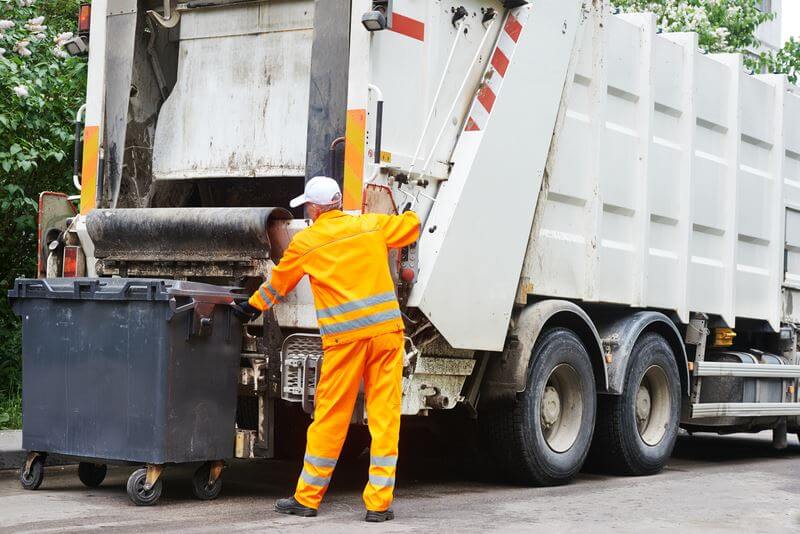Moving Locally: A Step-by-Step Guide
Moving locally might sound simpler than a long-distance relocation, but it requires just as much planning and organization to ensure everything goes smoothly.
Whether you’re moving across the street or to a different neighborhood, the process involves numerous steps, from packing your belongings to settling into your new home.
Engaging local movers can be a crucial step in this process, providing professional assistance to ensure your belongings are transported safely and efficiently.
This kind of expert help is invaluable for navigating the logistical challenges that come with relocating your life.
For many, the excitement of moving locally is about the fresh start it offers without the overwhelming change of a completely new environment.
It’s about the love of setting up a new home with familiar surroundings and amenities, where the transition might be geographical but not cultural.
This blend of newness and familiarity often makes moving locally a popular choice for those looking to relocate without venturing too far from their comfort zone.
With the right preparation and a reliable team of local movers, moving locally can be a rewarding and energizing experience, opening the door to new possibilities while keeping one foot in familiar territory.
Planning and Preparation
Start Early
 It is important to start the planning phase six to eight weeks before moving. Starting this early grants you some room for maneuvering every aspect of the relocation process even as you pack or sort out your moving day logistics.
It is important to start the planning phase six to eight weeks before moving. Starting this early grants you some room for maneuvering every aspect of the relocation process even as you pack or sort out your moving day logistics.
Therefore, it is important to begin as much as possible in advance so that hitches associated with moving can be minimized.
In addition, commencing early allows a person to pace themselves through the process since things may go wrong for them without causing panic on their move date.
This may involve delayed delivery of packing materials, clashes between services, or just alterations made at the end of where you will be moving to.
Create a Moving Checklist
A comprehensive moving checklist should serve as your guidebook throughout the entire transition period. To begin with, tasks should be split up to when they need to be done by movers.
You might, for instance, want to initiate things like identifying reputable movers buying packing boxes, and organizing transportation from the onset.
As departure day looms closer, the focus should shift towards packing up everything, informing people who offer various types of services about where you are going, and setting up utilities at the new home.
This checklist can act as a visual progress tracker ensuring no crucial steps have been missed. It’s not only able to break down an overwhelming move into manageable activities but also reminds one about approaching deadlines such as canceling service providers locally while establishing new ones hence no last-minute cruises.
Hiring Professional Help
Research Local Moving Companies
 When looking for a moving company, first check online reviews and ratings on platforms such as Yelp, Google, or Better Business Bureau.
When looking for a moving company, first check online reviews and ratings on platforms such as Yelp, Google, or Better Business Bureau.
For instance, positive reviews and high ratings indicate dependability and content to customers. Alternatively, one can seek advice from any friends or family members who have had similar experiences in the past.
Make sure that you consider only licensed and insured movers. This is important because it keeps you from being held responsible if anything happens to your belongings while they are being moved.
Usually, you can verify a person’s license number with the Department of Transportation in your state or an equivalent regulator.
Check out what kinds of insurance coverage different movers offer. Regular moving insurance may cover only part of your things ’ worth based on weight but not value.
An example of such items would be some other valuable things where people may decide to buy additional moving insurance.
Tips for Moving Locally

Plan Ahead
Strategic Preparation: Starting your moving preparations a month in advance is key to a stress-free relocation. Early planning allows you to secure the best local movers, whose schedules can fill up quickly, especially during peak moving seasons.
This foresight also provides you with enough time to address any changes or adjustments without panic, ensuring everything flows smoothly on the big day.
Declutter
Minimizing Your Load: Decluttering before you begin packing is an effective way to reduce the volume of items you need to move, which can significantly lower your moving costs. Take this time to assess what items you need.
Selling valuable items that are no longer of use can add to your moving budget while donating goods can provide a sense of contribution to your community. Disposing of unwanted items also means fewer boxes, which translates to quicker packing and unpacking.
Gather Supplies
Cost-Effective Packing
Collect boxes from local stores or use ones you already own to save money. While finding free boxes is beneficial, investing in high-quality packing materials for fragile and valuable items is crucial to prevent damage during the move.
Specialty boxes, bubble wrap, and packing paper are all worthwhile investments to ensure your belongings arrive in pristine condition.
Label Thoroughly
Efficient Unpacking
Clearly label each box with its contents and the room it’s destined for not only organizes the moving process but also streamlines the unpacking phase. This simple step can save hours, allowing you and your family to settle into your new home with ease.
Using a detailed labeling system, such as color coding or numbering, can further simplify the process, especially if you’re working with movers who will need direction on where to place your items.
Keep Essentials Accessible
Immediate Needs
Packing an essentials bag for your first day and night in the new home ensures you won’t need to rummage through boxes for your toothbrush or pajamas.
This bag should include basic toiletries, medications, a few changes of clothes, important documents, and chargers, among other necessities that will make the first 24 hours in your new environment comfortable.
Cost of Moving Furniture Locally
Variable Expenses
The cost to move furniture locally depends on the amount of furniture, the move distance, and any special handling requirements for items such as pianos, antiques, or electronics.
Typically, you can expect to pay between $75 and $250 per hour, which includes services from a professional moving team equipped with a truck and the tools necessary for safe transport.
How Much Do Local Movers Cost?

Hourly Rates
Most local movers charge an hourly rate that typically ranges between $30 and $50 per mover. This rate often includes the use of the moving truck, the labor of loading and unloading your belongings, and the standard moving equipment necessary to secure and transport your items safely.
It’s important to clarify what is included in this rate, as some companies may charge additional fees for fuel or mileage.
Flat Rates
For simpler or very well-defined local moves, some moving companies offer flat rates. This can be particularly advantageous for those who have accurately assessed their situation and can provide detailed information about the amount of furniture and belongings being moved, as well as access conditions at both locations.
Flat rates ensure that the cost of the move is predictable, with no surprises, assuming that the move conditions do not change significantly from what was initially expected.
Additional Costs
When planning your move, consider possible additional services you might need, which could increase the overall cost.
These services can include professional packing and unpacking, the disassembly and reassembly of furniture, and temporary storage if there is a gap between move-out and move-in dates. Some companies might also charge for moving supplies like boxes and packing tape.
Discussing these potential costs upfront with your moving company will help you manage your budget more effectively and avoid unexpected expenses.
How Much to Tip Local Movers

Standard Tipping
A common guideline for tipping movers who provide good service is $4 to $5 per hour per mover. This amount is considered a courteous recognition of their hard work and dedication to safely and efficiently handling your belongings. If the movers spend several hours at your home, this can add up to a significant token of appreciation by the end of the day.
Exceptional Service
If the movers provide exceptional service, navigate especially challenging conditions such as cumbersome furniture, stairs, long distances from the house to the truck, or handle extremely delicate items with care, a higher tip of $6 to $8 per hour per mover can reflect your gratitude for their extra effort and professional handling of difficult situations.
General Guideline
Alternatively, if calculating hourly tips seems complex, a simple flat tip of $20 to $40 per mover for the entire day’s work is also an acceptable way to show your appreciation. This method is straightforward and ensures each mover is rewarded for their service, making it clear you value and recognize their hard work.
Conclusion
Moving locally can be a streamlined and stress-free process with careful planning and execution.
By following these detailed steps, you are well on your way to a successful move that allows you to quickly adapt and enjoy your new surroundings. Remember, flexibility and preparation are key to overcoming the challenges that may arise during the move. Happy moving!







